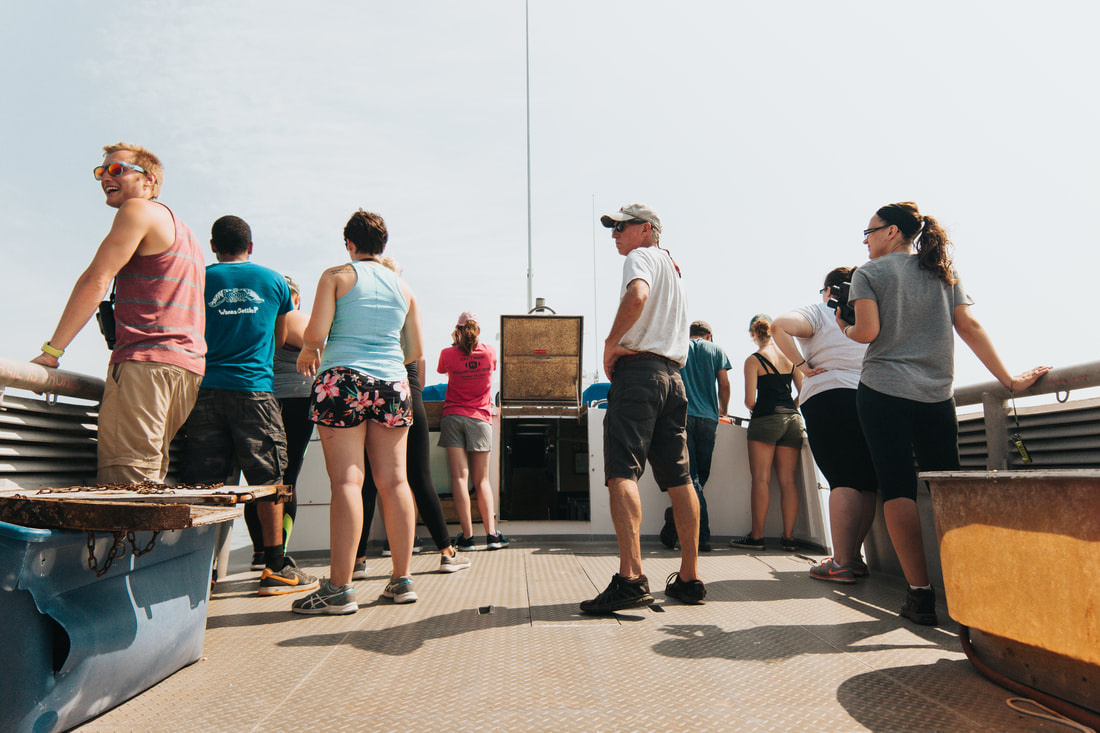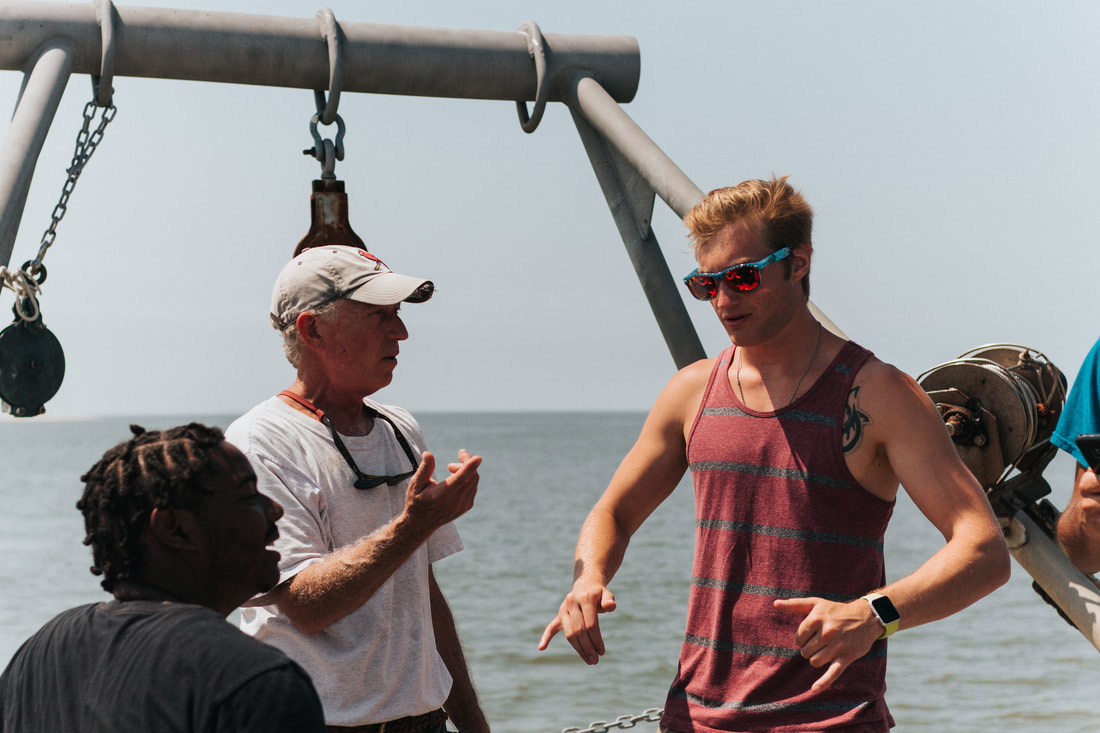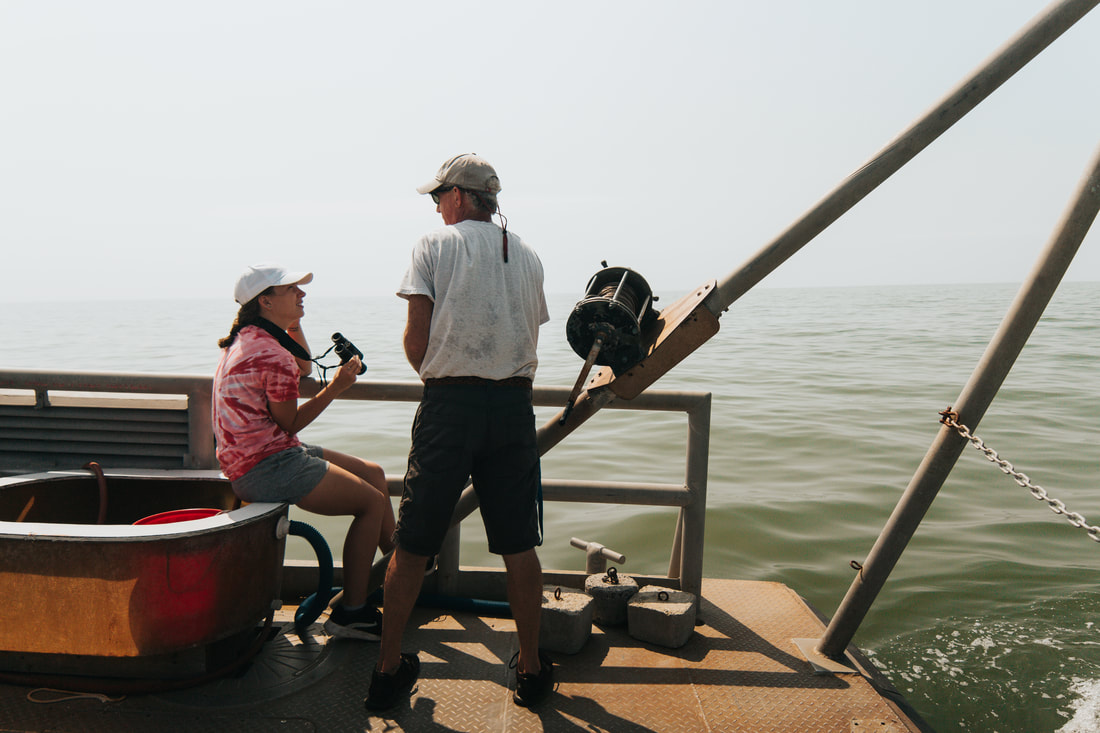|
Students have been taking college courses at CBFS/Marine Science Consortium for 50 years. From scuba diving the coral reefs of Honduras to vibracoring in the salt marshes of the Eastern Shore, students have been getting hands on, feet wet field experience to take their college experience to the next level. Alumni of the field station can be found at the Florida Fish & Wildlife Commission, out at sea with Northeast Fisheries Observers, and back in classrooms across the country as professors themselves. The benefits of the field station to the students is clear. But these students aren't just advancing their own futures in their time at the field station. They are advancing the future of science as a whole through a wide variety of data collection. One example of this can be seen with Greg Silber, Professor at Kutztown University and Scientist at SmulteaSciences, and the Marine Mammals course. During summer 2017 & 2018 his class collected and submitted data to two outside scientific databases. As the professor of the Marine Mammals course he says he not only "wishes to stress to students the value of carefully collected field data -- but to also illustrate the importance of their data to larger contexts." All of the dolphin sightings from class field work in and around the Chincoteague Channel and Wallops Island have now been added to a sightings data base operated by the University of Maryland’s Center for Environmental Science (https://www.umces.edu/dolphinwatch). These are the first entries for the Chincoteague area. In addition, for two summers, several students have conducted studies involving photo-identification of individual dolphins. These animals have natural marks (e.g., nicks, notches, scrapes, tooth marks) along their backs and dorsal fins that are unique to individuals; and matches between subsequent sightings of an individual can provide information on local and regional migration patterns/destinations, residency times, and an individual’s age, among other things. Silbers Marine Mammal students provided class-project dolphin photo-identification data to the Mid-Atlantic Bottlenose Dolphin Photo-ID catalog/database portion of the OBIS-SEAMAP (Ocean Biogeographic Information System Spatial Ecological Analysis of Megavertebrate Populations, http://seamap.env.duke.edu) program, a global seabird, sea turtle, shark, ray, and marine mammal on-line database administered by Duke University. The data is now available to related dolphin studies along the U.S. eastern seaboard. "Immediately upon submitting our photographs, the curator (of the project at Duke University) wrote to me saying she recognized two dolphins seen previously in the mid-late 1990s from the Virginia Beach catalog," Silber said, "thereby establishing minimum inter-year travel distances (ca. 100 miles as the crow flies) and minimum ages (ca. 20-plus yrs) for these two dolphins." Students also had the opportunity to compare their own photographs with ID photos taken near Wallops Island in the late 1990s. They compared their data to these photos, but, alas, no matches with these earlier sightings were found. However, there was one dolphin logged in Virginia Beach waters in 2013 that was observed off of Chincoteague in summer 2018. Through these exercises students were able to identify minimal residency times in the Chincoteague Inlet of at least five days (time between consecutive sightings of individuals). "While certainly not earthshattering findings – these animals no doubt travel distances far greater and live longer than these minimum values -- students deserve to be proud of their contributions," Dr. Silber says. These students may only be in the class for three weeks, but their work will be there for future scientists for years to come. Want to learn how you can step into the field at Chincoteague Bay Field Station? Our 2019 course list is up now! View it at www.cbfieldstation.org/summer-courses.
1 Comment
Michayle Hales
4/22/2022 08:31:54 pm
Do you offer volunteer experiences for 14 and 15 year olds?
Reply
Leave a Reply. |
About
Everything you need to know about CBFS's educational programs, visiting Chincoteague Island, and more! Categories
All
Archives
January 2019
|
CHINCOTEAGUE BAY FIELD STATION | 34001 Mill Dam Road | Wallops Island, VA 23337 | (757) 824-5636 | [email protected]



 RSS Feed
RSS Feed

